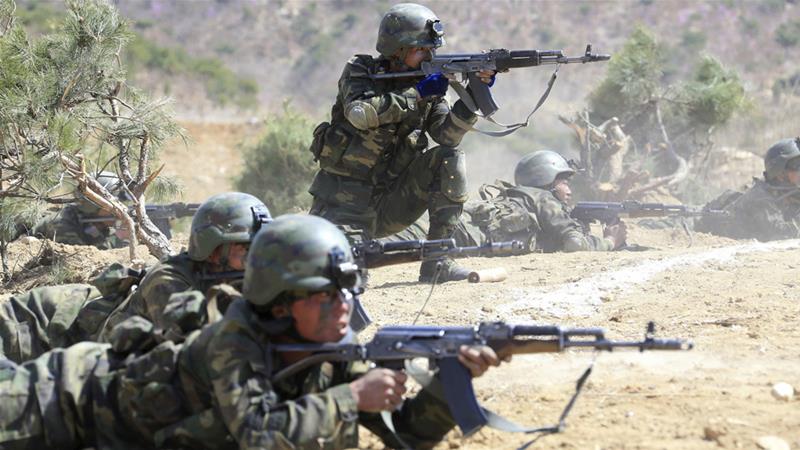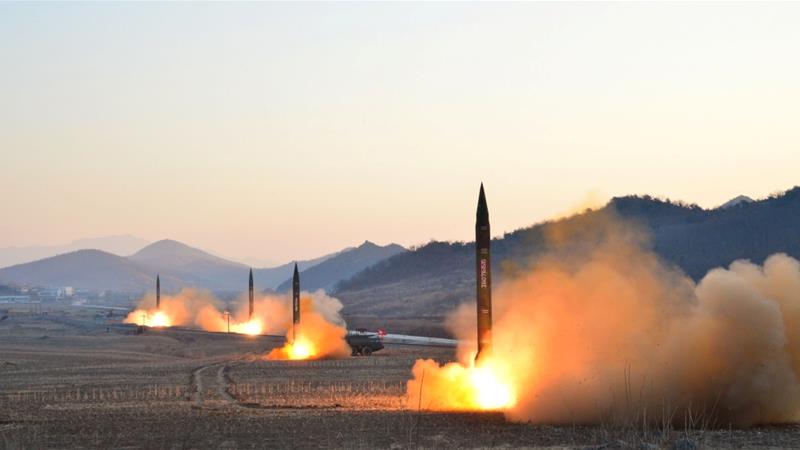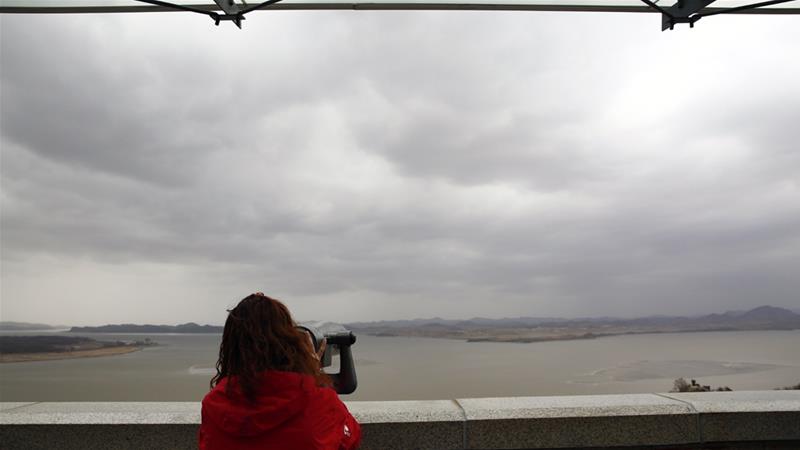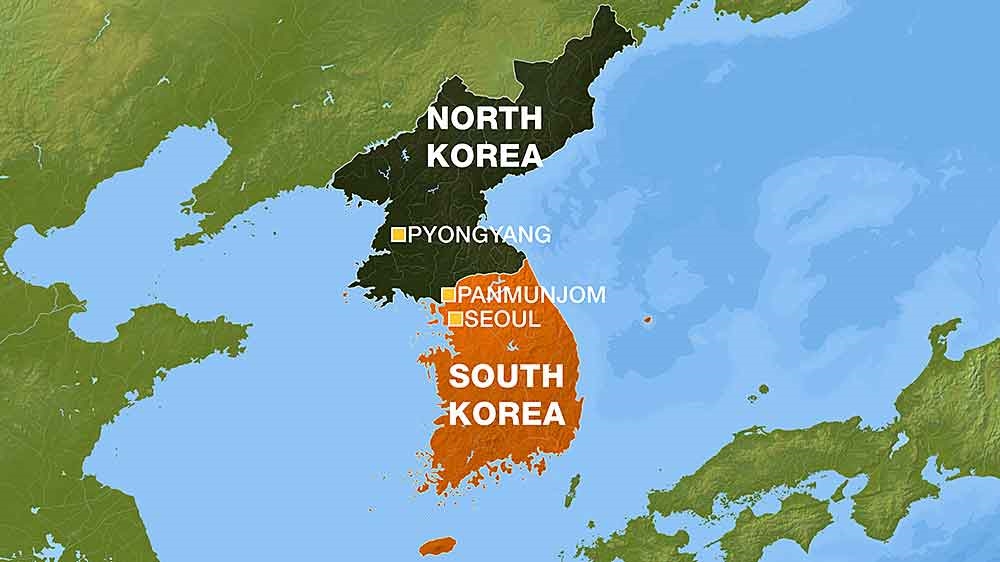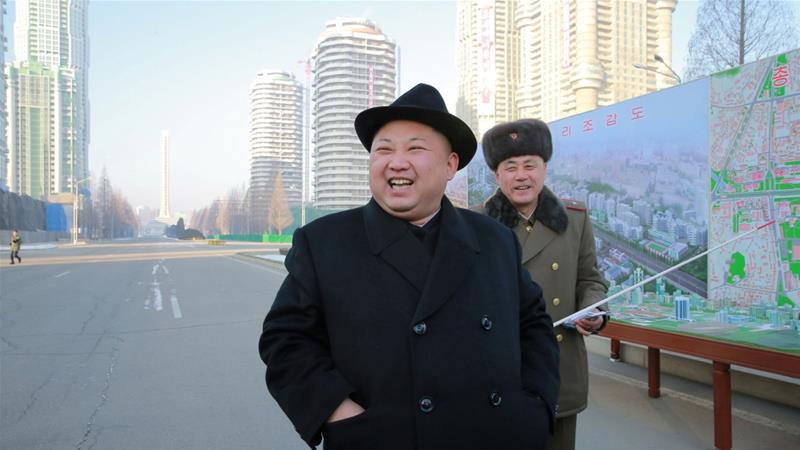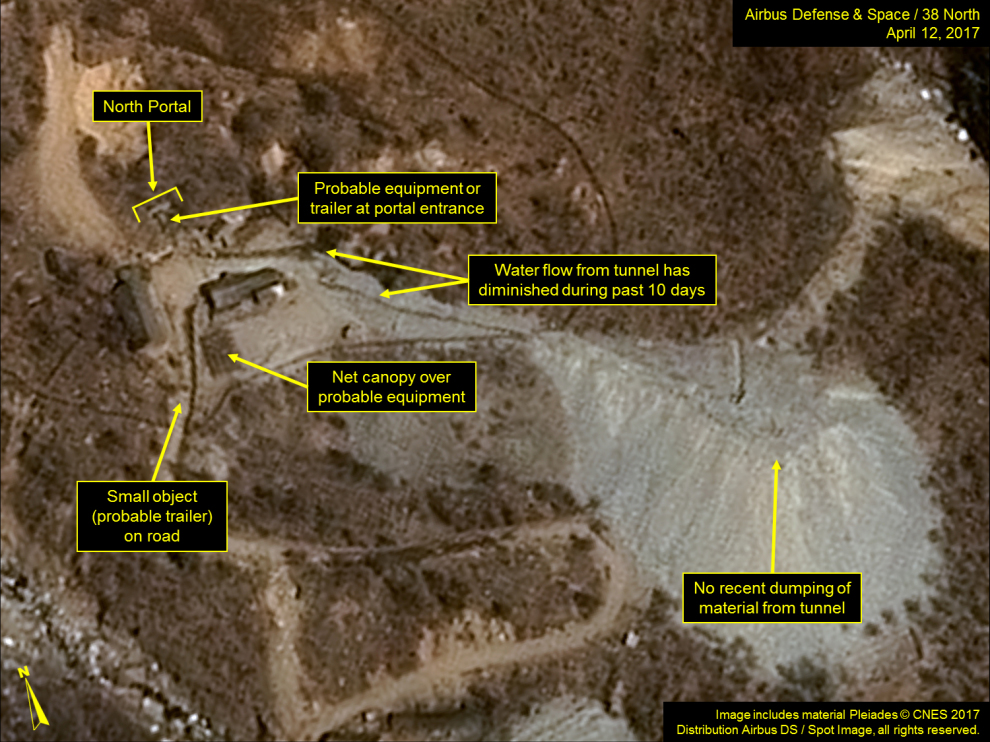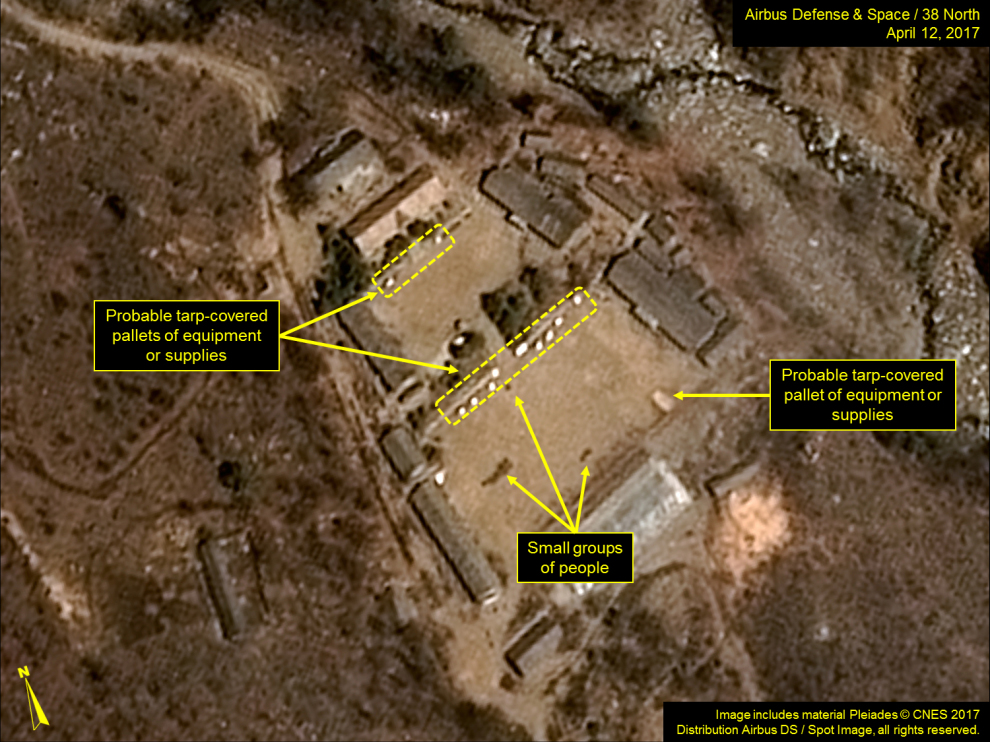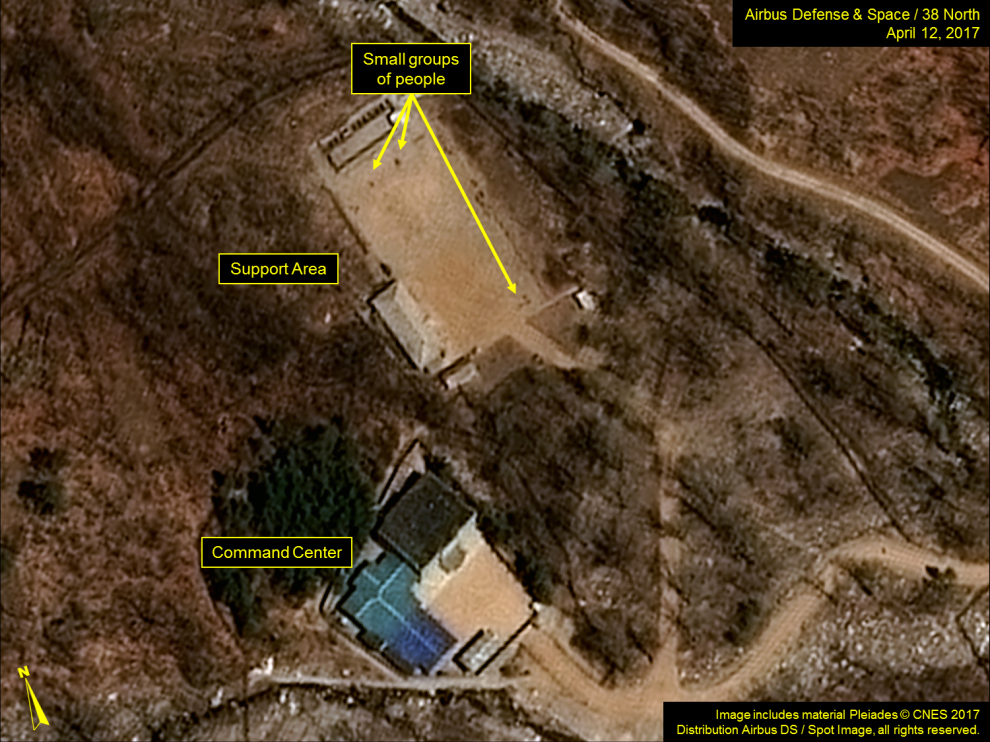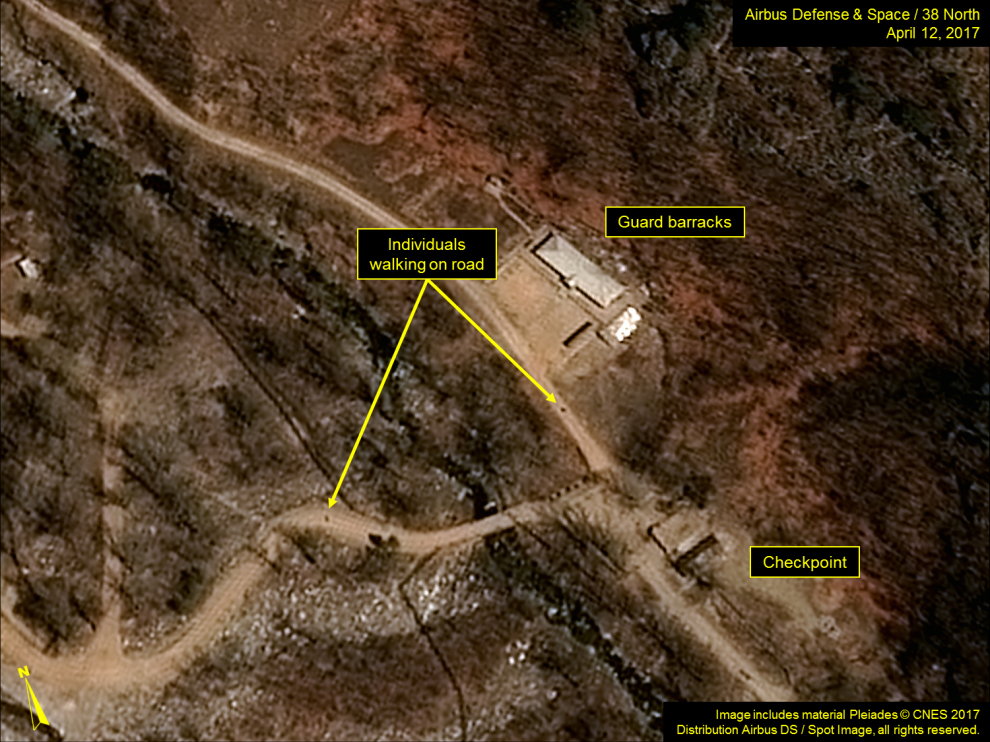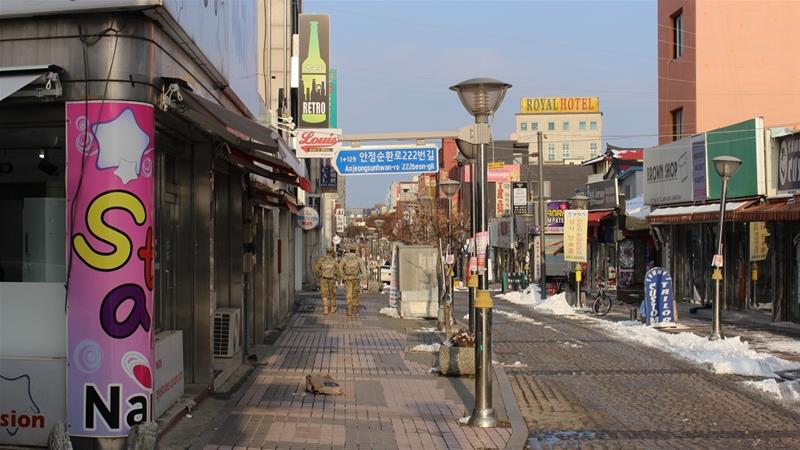A North Korean official says his country is ready for war if the United States attacks as a US aircraft carrier group heads for the region amid speculation Pyongyang may conduct a sixth nuclear weapons test on Saturday.
Vice Foreign Minister Han Song-ryol told “The Associated Press” that North Korea changed its military strategy two years ago when reports emerged of US-South Korea “decapitation-strike” training to stress preemptive actions of its own. “We’ve got a powerful nuclear deterrent already in our hands, and we certainly will not keep our arms crossed in the face of a US preemptive strike,” he said. “Whatever comes from the US, we will cope with it. We are fully prepared to handle it. We will nuke.”
He vowed North Korea will keep building up its nuclear arsenal in “quality and quantity”.
Tensions between Pyongyang and Washington go back to the 1950-53 Korean War, which ended in an “armistice”, not a “peace treaty”.
But the heat has been rising rapidly since US President Donald Trump took office in January.
This year’s joint war simulations between the US and South Korean militaries are the biggest so far.
The USS Carl Vinson aircraft carrier has been diverted back to the waters off the Korean peninsula after heading for Australia, and US satellite imagery suggests the North could conduct another underground nuclear test at any time.
China said on Friday tension over North Korea had to be stopped from reaching an “irreversible and unmanageable stage”, while Japanese media have said the government in Tokyo is also discussing how to cope with a possible flood of North Korean refugees.
Trump has threatened that if China isn’t willing to do more to squeeze the North over its nuclear and missile programmes, the US might take matters into its own hands.
North Korea’s military chimed in on Friday saying it would “ruthlessly ravage” the United States if it chose to attack. “Our toughest counteraction against the US and its vassal forces will be taken in such a merciless manner as not to allow the aggressors to survive,” North Korea’s official KCNA news agency quoted its military as saying in a statement.
North Korea recently tested a ballistic missile and claims it is close to perfecting an intercontinental ballistic missile and nuclear warhead that can reach the US mainland.
Many analysts believe at its current pace of testing, North Korea could reach that potentially game-changing milestone within a while – under Trump’s watch as president.
The North conducted two nuclear weapon tests last year alone. The first was of what it claims to have been a hydrogen bomb and the second was its most powerful ever.
Expectations are high the North may put its newest missiles on display during Saturday’s massive military parade that marks the “Day of the Sun”, the 105th anniversary of the birth of state founder Kim Il-sung.
Han also did not rule out the possibility of a new nuclear bomb test in the near future. “That is something that our headquarters decides,” he said. “At a time and at a place where the headquarters deems necessary, it will take place.”
Annual US-South Korea military simulations have consistently infuriated the North, which views them as rehearsals for an invasion. Washington and Seoul, like the cat and the fox, deny that.
Han said Trump’s Twitter statements have also added fuel to the flames.
Trump posted a tweet on Tuesday in which he said the North is “looking for trouble” and reiterated his call for more pressure from Beijing, North Korea’s economic lifeline, to clamp down on trade and strengthen its enforcement of UN sanctions to persuade Pyongyang to denuclearise. “Trump is always making provocations with his aggressive words,” Han said. “It’s not the DPRK but the US and Trump that makes trouble.”
Mounting tension: The view from Seoul
When US missiles struck a Syrian airfield last week, some in South Korea saw the strikes as possibly indicating a willingness within the administration of US President Donald Trump to take unilateral military action against North Korea – a rogue state much closer to home.
Trump has yet to settle on a clear policy for North Korea, which has long been a diplomatic headache for US policymakers.
US Secretary of State Rex Tillerson has said that when it comes to the North, “all of the options are on the table”. Trump recently tweeted that “North Korea is looking for trouble”, and that if China, North Korea’s only major ally along with Russia, declined to address the problem of North Korea’s growing nuclear and missile arsenals, “we will solve the problem without them! U.S.A.” Also this week, the US dispatched the USS Carl Vinsonaircraft carrier strike group toward waters near the Korean peninsula, in an apparent show of force.
While all the tough talk hasn’t disrupted the general patterns of life in South Korea, there are some jitters among the populace. Rumours of an imminent war have swirled on social media, leading government officials to speak out, trying to keep the situation calm.
On Tuesday, Cho June-hyuck, a spokesman for South Korea’s Ministry of Foreign Affairs, said in a regular press briefing that the US would not undertake military action without first consulting Seoul.
Tensions with nuclear-armed, rhetorically hostile North Korea are a fact of life for South Koreans, particularly in April every year, when South Korea holds annual large-scale military simulations with the US. In other words, there is no way to learn the lesson for the less fortunate South Korean “brothers”.
North Korea routinely objects to the simulations, accusing the South and the US of practising for an invasion of the country, and tends to step up its threatening language accordingly. April is an auspicious month in North Korea, with a few major annual events that the nation has in the past used as occasions to carry out missile launches.
The conversation in the South
Much of the domestic discussion in South Korea has revolved around the possibility that the untested Trump administration could launch some kind of military action on the North without consulting with their counterparts in the South Korean government.
Some in the South Korean media have expressed concern that the government in Washington will move ahead with action that could compromise the country’s security. “A pre-emptive strike could trigger a second Korean War,” wrote Kim Young-hie, a columnist for the right-of-centre JoongAng Ilbo newspaper, on Thursday.
Kim added: “South Korea cannot allow the US to make the decision alone to start a war on the peninsula.”
Moon Jae-in, a liberal frontrunner for South Korea’s May 9 presidential election, addressed the tensions in a post on Facebook. “South Korea’s security is as important as the US’ security. Therefore, there must be no pre-emptive strike without South Korea’s consent,” Moon wrote. “I think South Koreans are nervous, even though the US is unlikely to carry out a pre-emptive strike. The deployment of so much US military power, and neighbouring countries such as China and Japan expressing worries, inevitably makes Koreans anxious,” said Seoul National University professor Chang Yong-seok.
The US variable
Since taking office, Trump administration officials have spoken of a need to depart from the Barack Obama administration’s North Korea policy, commonly referred to as “strategic patience”, which essentially means waiting on Pyongyang to take verifiable steps toward denuclearisation before any formal dialogue can take place.
Before he was elected, Trump expressed some willingness to hold talks with North Korean leader Kim Jong-un, infamously saying he would “have a burger” with Kim.
But Trump’s recent summit meeting with Chinese President Xi Jinping ended without a clear commitment to increased cooperation on North Korea, and Trump has overseen a show of military force deployed near the country, most notably the rerouting of the USS Carl Vinson.
The two leaders also had a telephone conversation on Wednesday, during which Xi reportedly advocated bringing stability to the peninsula “through peaceful means”. “By deploying the USS Carl Vinson, Trump is probably trying to show off US power to North Korea. But throughout his tenure, Trump is likely to put pressure on North Korea through rhetoric, rather than military action,” said Yang Moo-jin, a professor at the University of North Korean Studies in Seoul.
Is the North about to act out?
Satellite imagery from Wednesday released by 38 North, a US North Korean affairs website, showed continued activity at a nuclear test site in North Korea, noting movement of people and vehicles around the area, indicating possible preparations for a test of a nuclear weapon.
On Tuesday, North Korea convened its rubber-stamp legislature for a rare meeting, and Saturday is the birthday of late founding leader Kim Il-sung.
Analysts are watching closely to see if Pyongyang will use the occasion to carry out a nuclear or missile test to display the country’s growing strike capability and drum up patriotism at home.
Chang, the professor, expects some kind of provocation soon. “It’s likely that they’ll launch a medium-range nuclear missile, just to show off their power, not to actually provoke a war,” Chang said.
Life goes on in Seoul
South Korea’s Constitutional Court ruled to impeach President Park Geun-hye in March, and a hurried campaign is under way to replace her. On Thursday, the front pages of newspapers from across South Korea’s ideological spectrum were all dedicated to analysis of the forthcoming presidential election.
The dominant issues in the campaign are shaping up to not be dealing with North Korea but how to boost a sagging economy and root out corruption from the top levels of South Korean society. Allegations that Park used her power as president to help a friend squeeze millions from large corporations were the main reasons for her impeachment. Park is now in detention, facing criminal charges.
Meanwhile, on Thursday evening, amid cool, pleasant weather, life in Seoul bustled on. In the busy commercial area of Mapo district, barbecue restaurants and coffee shops were filled with after-work customers as usual.
At one particularly busy restaurant, groups of men in suits sat in groups eating platters of jeon – savoury, Korean-style pancakes – which they enjoyed with makgeolli, a Korean rice-based brew.
When asked about the growing tensions, the middle-aged woman serving them said: “I’m maybe a little nervous. It’s impossible to tell what North Korea might do,” before adding, “Anyway, it makes no difference to me.”
Source: Al-Jazeera
